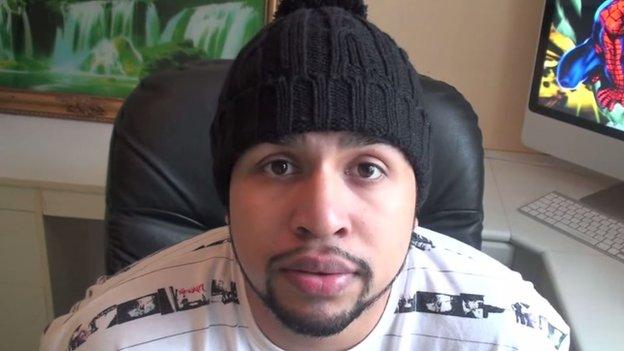Radical Islamists 'facing ban on working with children'
- Published
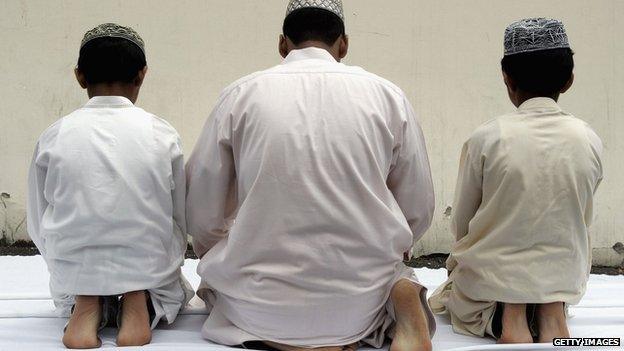
A new government strategy has been working its way through Whitehall for some time
Banning radical Islamists from working unsupervised with children could be one measure included in a new government anti-extremism strategy, reports say.
The Telegraph says a leaked Home Office document, external also suggests Sharia courts and councils are areas of concern.
Job centre staff may also be told to identify vulnerable claimants who could become targets for radicalisation.
Education Secretary Nicky Morgan said she was "concerned about what might be taught in some of our schools".
The BBC understands the document has yet to be signed off by the coalition.
'Fundamental British values'
Foreign Secretary Philip Hammond said the government was "increasingly aware" of the need to tackle extremists at home who "give succour to" terrorists.
"It isn't just those who break the law by committing acts of violence," he told the BBC's Andrew Marr show.
The new government strategy on tackling extremism has been working its way through Whitehall for some time.
The document reportedly proposes a number of new measures, including tightening the rules on citizenship to make sure new residents embrace "British values".
It says the government needs to be "more assertive" in challenging extremists who oppose democratic values.
Speaking to the Murnaghan programme on Sky News, Mrs Morgan said she would not comment on leaked documents but said messages young people receive in and out of school were important, and there were concerns about the speakers some schools had invited in.
She added: "I think as education secretary, it would be right for me to say that I am, of course, concerned about what might be taught in some of our schools.
"And we have since last year required all schools to actively promote these fundamental British values, so that our education system is opening up young minds, it's not closing them down."
'Mainstream voices'
Labour shadow justice secretary Sadiq Khan said plans to ban radical Islamists from working unsupervised with children made "perfect sense".
He said the idea of an allegiance to British values was a good thing, but there were some people in the UK who did not understand such rights and responsibilities.
The Sunday Telegraph quotes the document as saying: "In the past, there has been a risk that the government sends an ambivalent and dangerous message - that it doesn't really matter if you don't believe in democracy.
"We need to stand up and be more assertive in promoting our values and challenging the extremists who fundamentally oppose them.
"This will include explaining our foreign policy [and] promoting mainstream voices supporting the quiet majority in all communities who oppose extremism."
The leaked document is also said to claim the Trojan Horse affair - which looked at allegations hard-line Muslims were trying to gain control of schools in Birmingham - was "not an isolated example of schools where extreme views became prevalent".
It says that universities, charities and local councils could be vulnerable to "entryism", with extremists infiltrating organisations intending to promote their own views.
The new strategy would reportedly also call for an independent review into Sharia courts, which operate under Islamic religious law.
It states there have been "troubling reports that in some areas women have suffered from the way these councils work", the newspaper said.
Police cuts warning
The proposed measures could be introduced immediately if the coalition parties approve it before the election, says BBC political correspondent Ben Wright.
The document's emergence comes in the wake of three British schoolgirls travelling to Syria, apparently to join Islamic State, and IS fighter "Jihadi John" being identified as Mohammed Emwazi, a UK citizen who was educated in west London.
Meanwhile, the retiring president of the Association of Chief Police Officers has warned that further cuts to policing in Britain could leave forces without the resources to protect the public from threats including terrorism.
Sir Hugh Orde told the Observer newspaper, external that taking police off the streets was a clear risk in the fight against extremism.
He said: "The critical element, it seems to me, with dealing with people who will start to behave differently in their communities is the confidence in that community to speak to the local cops.
"If the cops aren't there, and that relationship has not been built, we won't get the intelligence."
- Published8 March 2015
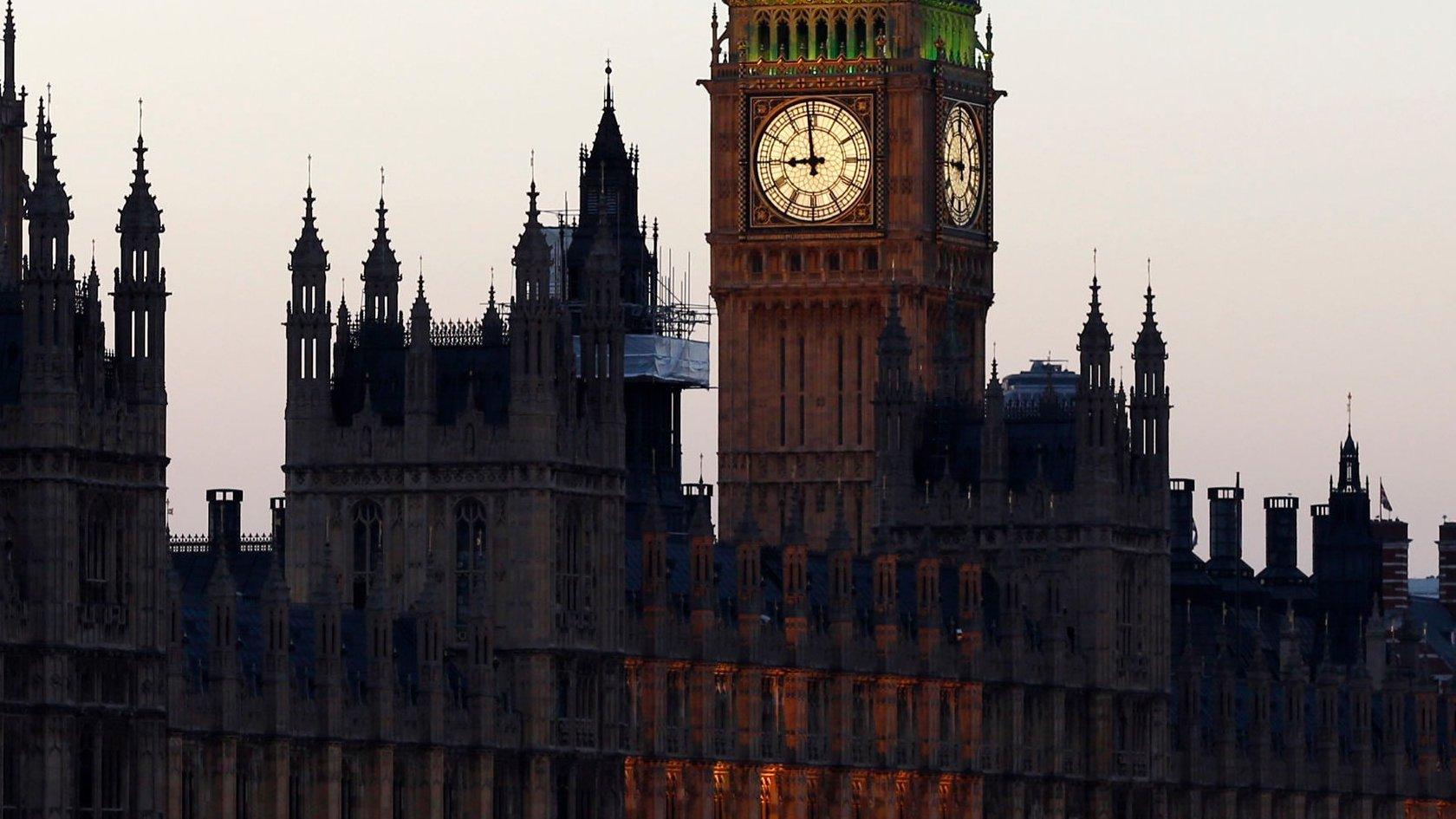
- Published8 March 2015
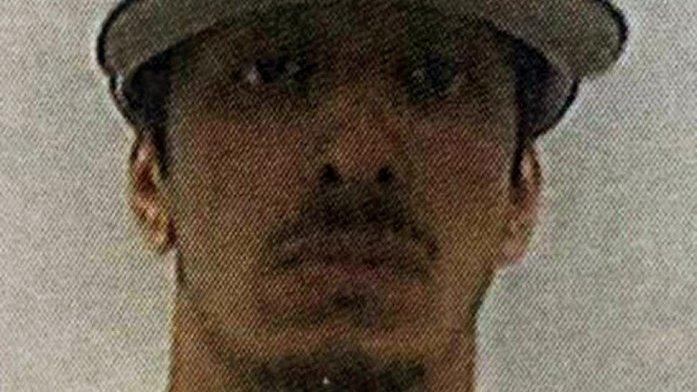
- Published7 March 2015
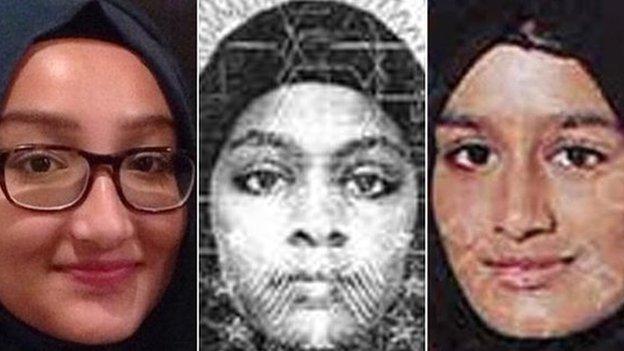
- Published8 February 2015
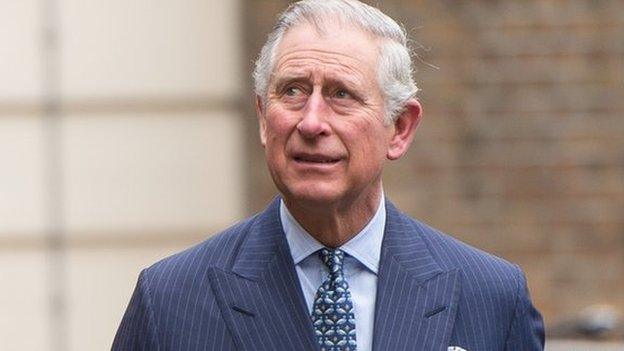
- Published28 January 2015
